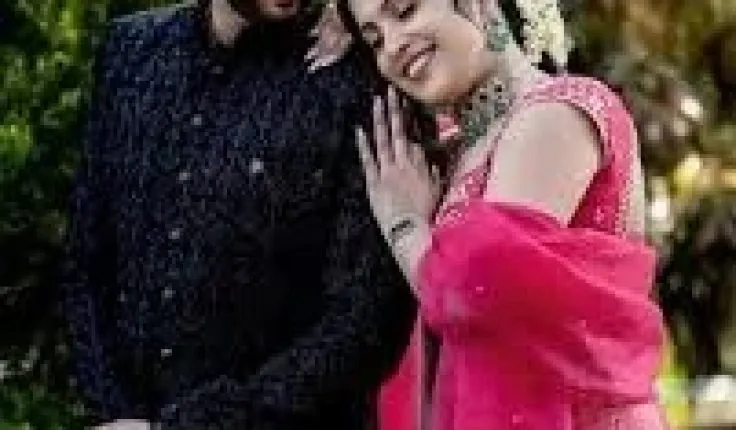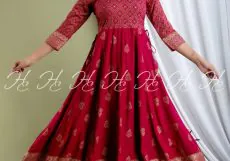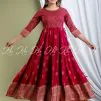A Celebration of Culture: Exploring Kerala Wedding Traditions and the Significance of Wedding Invitation Cards in Kerala
0 Views

Weddings are not just a union of two souls—they are a blend of emotions, culture, traditions, and values passed down through generations. In India, each state has its unique wedding customs, and Kerala wedding traditions are among the most elegant and spiritually rich. Known for their simplicity, symbolism, and cultural significance, Kerala weddings—whether Hindu, Muslim, or Christian—highlight the beauty of traditions blended with a modern outlook. An essential element of this celebration is the wedding invitation card Kerala style, which sets the tone for the upcoming festivities and reflects the state’s vibrant cultural heritage.
Understanding Kerala Wedding Traditions
Kerala, often referred to as “God’s Own Country,” is home to diverse communities—primarily Hindus, Muslims, and Christians—each with distinct wedding rituals. However, despite the differences, all Kerala weddings emphasize simplicity, spirituality, and family bonding.
1. Hindu Weddings in Kerala
The Hindu Nair and Namboothiri weddings are relatively simple compared to other Indian weddings. The ceremonies often take place in the morning, believed to be an auspicious time.
Pre-wedding Rituals: This includes “Nischayam” or engagement, where families formally agree to the marriage. Horoscope matching is crucial in traditional Hindu weddings.
On the Wedding Day: The bride wears a cream-colored saree with a golden border, adorned with gold jewelry. The groom wears a traditional white mundu and a simple shirt or angavastram. The most symbolic ritual is the ‘Thalikettu’, where the groom ties a sacred gold thread (thali or mangalsutra) around the bride’s neck, signifying their union.
Post-wedding Rituals: A traditional feast or “Sadhya” is served on banana leaves, followed by the bride’s departure to the groom’s home, often marked by emotional and joyful rituals.
2. Muslim Weddings in Kerala
Known as Nikah, the Muslim wedding in Kerala blends religious solemnity with community celebration.
Nikah Ceremony: It involves a formal contract signed by both parties in the presence of witnesses. A religious scholar (Qazi) officiates the ceremony.
Mahr: A significant custom where the groom offers a mandatory gift or amount to the bride as part of the agreement.
Post-wedding: The “Walima” is a reception hosted by the groom’s family, celebrating the union.
3. Christian Weddings in Kerala
Kerala has a large Christian population, especially in the Syrian Christian and Latin Catholic communities.
Pre-wedding: The “Manasammatham” or betrothal is a vital ceremony that confirms the couple’s intention to marry.
Church Wedding: The couple exchanges vows in a church, blessed by a priest. The bride typically wears a white gown, while the groom dons a suit or traditional attire.
Reception: Held after the church ceremony, this includes cake-cutting, toasts, and traditional Kerala meals.
The Role of Wedding Invitation Cards in Kerala
Before the rituals and celebrations begin, a wedding announcement is made—through a beautifully crafted wedding invitation card Kerala style. In Kerala, these cards are more than just a formal invite; they are a reflection of tradition, aesthetics, and familial warmth.
Significance of Wedding Invitation Card Kerala Style
Cultural Reflection: The design and wording of the invitation card often reflect the community’s customs and religious sentiments. For instance, a Hindu invite may start with a Lord Ganesha motif, while a Christian card may include a cross and Biblical verses.
Traditional Yet Modern Designs: Many couples today opt for fusion cards—traditional symbols with a touch of modern elegance. Eco-friendly wedding cards made of banana fiber, recycled paper, or palm leaves are also gaining popularity in Kerala.
Multilingual Invitations: Given Kerala’s linguistic diversity, invitation cards are often printed in Malayalam and English, catering to both local and global guests.
Family Legacy: Often, the wording follows a template passed down through generations. The names of parents, grandparents, and even family ancestry may be mentioned, highlighting the deep-rooted respect for elders.
Choosing the Perfect Kerala Wedding Invitation Card
Selecting the right wedding invitation card Kerala style is a crucial part of the planning. Here are some popular trends:
Minimalist Temple-Themed Cards: Featuring temple architecture, lamps, and lotus motifs—these are perfect for traditional Hindu weddings.
Scroll Invitations: Inspired by royal traditions, these work beautifully for Christian and Muslim ceremonies.
Digital Invitations: With the rise of technology, digital Kerala wedding invites with animations, Malayalam script, and background Carnatic music are becoming a hit among tech-savvy couples.
Final Thoughts
Kerala weddings are a delightful blend of simplicity, tradition, and love. Whether it’s the heartfelt rituals, the warm community spirit, or the delicious Sadhya meal, every aspect tells a story. And that story begins with a thoughtfully designed wedding invitation card Kerala style—setting the stage for a beautiful union.
So whether you’re planning a wedding in Kerala or simply fascinated by Indian cultures, taking a closer look at Kerala wedding traditions and the role of the invitation card offers a window into a world where every detail is cherished and every custom has a deeper meaning.
- TAGS :
Related Posts

Can a kurti wholesaler provide customized designs for retailers?
Lucas Reed / August 29, 2025

















